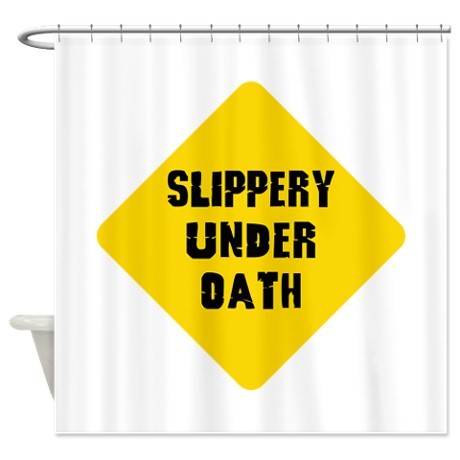SEC Addresses the Intrastate Crowdfunding Exemption
Posted onOn October 2, 2014, the Securities and Exchange Commission issued an updated compliance and disclosure interpretation addressing intrastate crowdfunding and Rule 147 of the Securities Act of 1933, as amended (the “Securities Act”). Rule 147 of the Securities Act is known as the intrastate exemption. It provides an exemption from the registration statement requirements for issuers conducting an intrastate offering that satisfies certain conditions including that sales may only be made to residents of the same state as the issuer. Read More
What Are the Prospectus Delivery Requirements? Going Public
Posted onSecurities Lawyer 101 Blog
Under the Securities Act of 1933 as amended (the “Securities Act”), an issuer that conducts an initial public offering (“IPO”) including in a going public transaction must adequately disclose material information to investors. These disclosures include details of the Company’s business and financial condition as well as the securities the Company proposes to offer.
In going public transactions, these disclosures are most often provided in a Form S-1 Registration Statement. Upon effectiveness of its S-1 registration statement, the Company provides potential investors with a prospectus which forms a part of the registration statement. The prospectus contains two parts. Read More
Dickson Lee of L&L Energy Pleads Guilty to Securities Fraud
Posted on
On September 23, 2014, Dickson Lee, former CEO of Seattle-based L&L Energy, plead guilty to two counts of securities fraud. The plea was announced by the U.S. Attorney’s Office for the Western District of Washington. L&L Energy was once listed on the NASDAQ. It purported to be engaged in various aspects of the coal mining business in China, and had offices in Taiwan as well as in Seattle. Read More
Raising Capital and Going Public Guide
Posted onThere are two primary sets of federal securities laws that come into play when a company wants to offer and sell its securities and go public. These are the Securities Act of 1933 (“Securities Act”), and the Securities Exchange Act of 1934 (“Exchange Act”). These laws are complex and govern the registration statement process and disclosure obligations.
The Securities Act in Going Public Transactions
The Securities Act regulates offers and sales of securities in the United States or that use the means of interstate commerce, such as the internet, U.S. telephone lines or the U.S mail.
For securities offerings to the public, the Securities Act generally requires the company to file a registration statement containing information about itself, the securities it is offering and the offering. The SEC staff reviews these registration statements to see if the SEC’s disclosure rules are satisfied. The SEC does not evaluate the merits of securities offerings, or determine whether the securities offered are “good” investments or appropriate for a particular type of investor. Once the review is completed, the staff declares the registration statement “effective,” allowing it to be used to complete sales to investors. Read More
What is the Section 4(a)(5) Accredited Investor Exemption?
Posted onOffers and sales of securities must be either registered with the Securities and Exchange Commission (the “SEC”) or be exempt from registration.
Section 4(a)(5) of the Securities Act of 1933, as amended exempts from the registration statement requirements offers and sales of securities to accredited investors when the total offering price is less than $5 million. Read More
The SEC’s XBRL Interactive Data l Securities Lawyer 101
Posted onThe use of eXtensible Business Reporting Language (XBRL) interactive data is intended to improve the accessibility of financial information to investors by making the information inexpensive and easier to use. XBRL interactive data uses a standardized set of tags to consistently identify data in embedded text. Issuers must identify each piece of data in its financial statements according to a standard list of tags assigned to the particular type of data. Read More
The Going Public Attorney & Due Diligence – Going Public Attorneys
Posted on
A company’s going public lawyer must conduct proper due diligence in order to draft required disclosures during the going public process. These expansive disclosure requirements apply to private companies going public. During the going public process, companies must generally provide expansive disclosures. These disclosures include information about their financial condition, business plan and operations, material risks, management, litigation and stockholders, in addition to how many shares will be offered and at what offering price.
The going public attorney’s role varies, depending upon the company’s financial condition, assets, revenues, its business, location and other factors. Any private company seeking to go public needs a securities lawyer to guide it through the registration statement requirements, auditors to audit at least two years of financial statements and–if an initial public offering (“IPO”) is planned–the issuer will also require underwriters to offer and sell its securities. Read More
Section 15-d Reporting l Securities Lawyer 101
Posted onUpon completion of a going public transaction, an issuer that has registered equity or debt securities in an initial or direct public offering registered on Form S-1 under the Securities Act of 1933, as amended (the “Securities Act”) must file annual, quarterly and current reports with the Securities and Exchange Commission under Section 15-d of the Securities Exchange Act of 1934.
Section 15-d reporting requirements apply even if the public company does not list its securities on a national securities exchange or market and the company has not met the size thresholds requiring Exchange Act registration. Read More
Oh the Places You Will Go When Going Public
Posted onOh the Places You’ll Go – Understanding the Going Public Process
The going public process involves a myriad of rules and regulations that issuers must consider before structuring their transactions.
While going public offers many benefits, it also comes with risks and quantities of regulations with which issuers must become familiar. Read More
What Are Form 10-K Exhibits ? By Brenda Hamilton, Lawyer
Posted onSome of the most valuable sources of information about a public company are Form 10-K exhibits. Item 601 of Regulation S-K identifies the documents to be filed as exhibits. Issuers are often unclear about the requirements of Item 601 particularly its provisions requiring issuers to file material agreements made outside the normal course of business.
Issuers typically generally incorporate by reference documents that they have previously filed as exhibits to other SEC filings. The most important documents that must be filed as exhibits to Form 10-K are the issuer’s material contracts. Read More
General Solicitation & the Rule 506 Private Placement Exemption
Posted onThe Securities Act of 1933 (the “Securities Act”) provides for a private offering exemption from federal securities registration which is increasingly being used by both private and public companies to raise capital during market downturns and in times of market uncertainty. The Securities Act provides substantial guidance about the circumstances in which an offering will be deemed private.
One requirement for a private placement offering is that there can be no general solicitation or advertising of the offering. The most commonly used private offering exemption is Rule 506 of Regulation D.
Form S-1 Financial Statements l Going Public Attorneys
Posted onCompanies that register securities for direct public offering on Form S-1 as part of their going public transaction must provide audited financial statements to the Securities and Exchange Commission (“SEC”). These financial statements include a balance sheet, statement of shareholders’ equity, income statement and statement of cash flows.
SEC Disclosures for Smaller Reporting Companies
Posted onThe SEC Disclosure rules allow smaller reporting companies to provide less comprehensive disclosures in their reports and filings so that compliance with the SEC’s disclosure requirements is less burdensome. These reduced disclosure requirements are especially beneficial to private companies who wish to go public but are unfamiliar with the requirements of SEC reporting. Read More
SEC Charges Heathrow Natural Food & Beverage and Michael Pagnano
Posted onOn September 23, 2014, the Securities and Exchange Commission (the “SEC”) issued an order instituting cease and desist proceedings against Registrar and Transfer Company (“R&T”), a transfer agency registered with the SEC, and its President and CEO Thomas Montrone in connection with certain securities transactions related to Heathrow Natural Food and Beverage, Inc. Registrar and Transfer Company is located in New Jersey and has approximately 190 employees. It began acting as transfer agent for Heathrow in 2005.
Heathrow’s common stock is currently quoted as “HRNF” on OTC Link, OTC Markets Group’s electronic interdealer quotation system. In a separate action, the SEC has charged the company and its CEO Michael Pagnano with fraud. Read More
Direct Public Offerings After the JOBS Act
Posted onThe Jumpstart Our Business Startups Act, or JOBS Act, is intended, among other things, to reduce barriers to capital formation, particularly for smaller companies in going public transactions. The JOBS Act relaxed the rules and regulations applicable to direct public offerings and the going public process. As explained below, the amendments relax the rules applicable to investors who are accredited investors and/or qualified institutional buyers. The Jobs Act eased the restrictions applicable to direct public offerings by making it easier for issuers to raise capital without an underwriter. Read More
The SEC’s Electronic Data Gathering and Retrieval System – EDGAR
Posted on
Most documents filed with the Securities and Exchange Commission (the “SEC”), are required to be filed electronically using the SEC’s Electronic Data Gathering and Retrieval system (“EDGAR”). Additionally, public companies filing on EDGAR must tag their financial data using eXtensible Business Reporting Language (“XBRL”). Filings required to be filed on the EDGAR database include Forms 10-K, 10-Q and 8K, proxy statements, Forms 3, 4 and 5, Form D, Schedules 13D and 13G, all registration statements and most other SEC filings. Read More
What are Convertible Securities? l Securities Lawyer 101
Posted onA “convertible security” is often structured as a bond, note, preferred stock, or a wraparound agreement that results in the conversion of the debt obligation into common stock. The holder of the convertible security or the company may have the ability to determine when the holder of a convertible security must convert. In recent years, the penny stock markets have been plagued with dilution funders using various types of debt securities to issue unrestricted shares. Read More
SEC Form 3, 4 & 5 Filing and Disclosure Requirements l By: Brenda Hamilton Attorney
Posted onAfter the recent sweep by the Securities and Exchange Commission(the “SEC”) charging 28 persons in connection with their failure to file insider reports, we have received requests for information about insider reporting obligations. This blog post addresses the insider reporting obligations that exist upon completion of a going public transaction. Each officer, director and 10% shareholder of a company with a class of securities registered under the Securities Act of 1934 must file a Form 3 disclosing the number of shares of the public company’s common stock he or she beneficially holds. Read More
Retweets of Social Media & Public Companies
Posted onIt has become almost routine for public companies to use social media to interact with their shareholders, and customers. The Securities and Exchange Commission (the “SEC”) has provided guidance in compliance and disclosure interpretations addressing the use of Twitter, Facebook, and other forms of social media.
Active Hyperlinks & Disclosure Obligations
The SEC addressed the use of social media and hyperlinks using social media platforms, such as Twitter, that limit the number of characters or amount of text that can be included in the communication, effectively making it impossible for firms to include the required legends and other disclosures. Read More
Integration During the Going Public Process – Securities Lawyer 101
Posted onIssuers often need to raise funds during their going public transactions to offset legal and accounting costs. The SEC integration rule addresses the circumstances under which an issuer can raise capital privately while a Form S-1 registration statement is pending during the going public process.
The integration rules were created to prevent companies from improperly avoiding registration by dividing a single securities offering into multiple offerings to take advantage of Securities Act exemptions that would not be available for the combined offering. Read More
Penny Stock Emails 101- Securities Lawyer 101
Posted on

Often times investor relations firms touting microcap stocks use penny stock email containing newsletters and advertisements about a stock’s potential. Recent indictments and SEC cases have focused on the use of penny stock email lists that have been used to solicit investors. Read More
Craig Karlis Sentenced to 9 Years For Fraud Charges
Posted onThe Securities and Exchange Commission (the “SEC”) announced that on September 16, 2014, the former owner of a Boston Trading and Research, LLC (“BTR”), was sentenced to nine years in prison after pleading guilty to charges that he and his business partner defrauded more than 700 investors out of more than $30 million. Craig A. Karlis, was sentenced to nine years in prison, three years of supervised release, and ordered to pay $4,378,306 in restitution to the fraud victims. In March 2014, Karlis pleaded guilty to nine counts of wire fraud, among other charges. Read More
SEC Charges 28 With Insider Reporting Failures
Posted onOn September 10, 2014, the Securities and Exchange Commission (the “SEC”) announced enforcement actions and penalties of more than $2.6 million against 28 individual directors, officers, and beneficial owners and 6 issuers for failure to promptly report their holdings in Section 16(a) reports and Schedule 13D and Schedule 13G filings. Read More
Securities Lawyers Gone Wild – Svitlana Sangary
Posted onBusiness Lawyer Photoshops Her Way to a Six Month Suspension
Some wayward attorneys content themselves with writing fraudulent opinion letters, but Svitlana Sangary, a Los Angeles business lawyer, yearned for the red carpet. In an apparent attempt to convince prospective clients that she hobnobbed with the rich and powerful, she filled the “publicity” page at her website with photoshopped images of herself cozying up to a considerable number of celebrities and politicians. Read More
SEC Charges 8 in Pump and Dump Scheme
Posted onOn September 18, 2014, the Securities and Exchange Commission (the “SEC”) announced charges against eight individuals for their roles in an alleged pump-and-dump scheme involving a penny stock company based in California that has repeatedly changed its name and purported line of business over the past several years.
The SEC alleges that the pump and dump scheme was orchestrated by Izak Zirk de Maison, who was named Izak Zirk Engelbrecht before taking the surname of his wife Angelique de Maison.
Both de Maisons are charged by the SEC in the case along with others enlisted to buy, sell, or promote stock in the company now called Gepco Ltd. Zirk de Maison installed some of these associates as officers and directors of Gepco while he secretly ran the company behind the scenes. Collectively, they amassed large blocks of shares of Gepco common stock while the de Maisons manipulated the market to create the appearance of genuine investor demand, allowing an associate to sell his stock at inflated prices to make hundreds of thousands of dollars in illicit profits. Read More

































Sponsoring Market Makers l Going Public Bootcamp
Posted onSecurities Lawyer 101 Blog
One step in going public transactions is obtaining a stock trading or ticker symbol from the Financial Industry Regulatory Authority (“FINRA”). For a company to obtain a ticker, a sponsoring market maker must submit an application on Form 211 on the issuer’s behalf to the FINRA.
Sponsoring markets makers have become one of the most important players in the going public process because they are the only ones who can apply for a ticker symbol. This applies in initial public offerings and direct public offerings. Companies not qualifying for a stock exchange often elect to go public on the OTC Markets OTCQB or OTCQX which requires that the issuer locate a sponsoring market maker. Read More